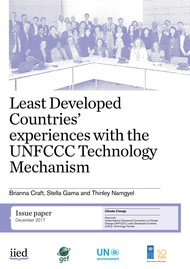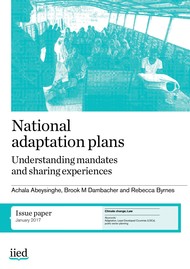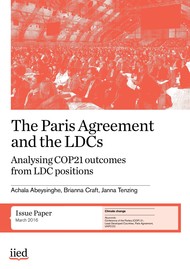Strengthening the Lima Work Programme on Gender; Perspectives from Malawi and the CBD

Increasing evidence of the differential impacts of climate~change on women and girls in recent decades has led~to significant progress in addressing the interlinkages~between gender and climate change under the UNFCCC.~The two-year Lima Work Programme on Gender launched~at COP20 aimed to advance gender equality mandates across all areas of the climate negotiations. It is due to be reviewed at COP22 in Marrakech in November 2016, presenting an opportunity for parties and observers to further strengthen and advance gender equality under the UNFCCC. Women and girls in the countries represented by the Least Developed Countries (LDC) Group are~disproportionately dependent on climate-sensitive resources for their livelihoods and have unequal access to land, water and other resources and productive assets.
Cite this publication
Available at https://www.iied.org/10165iied






